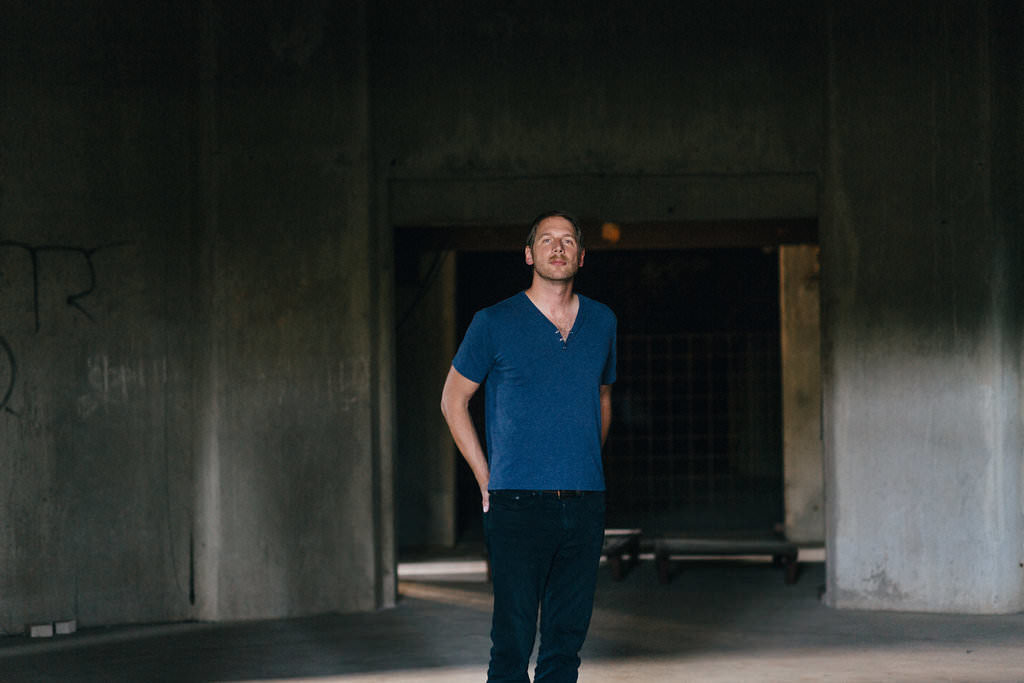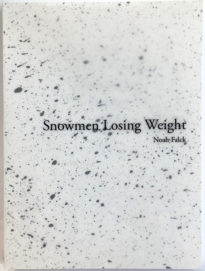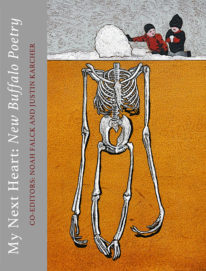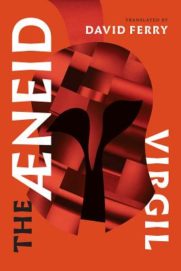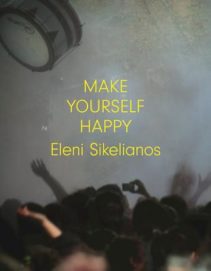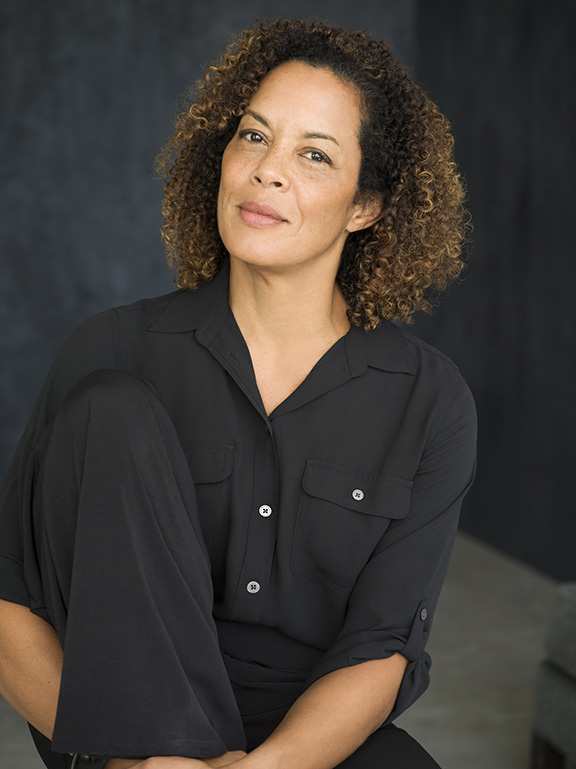
photo by Nina Subin
interviewed by Allan Vorda, with Nina Shanu and Jennifer Otalor
A writer with both a Scottish and Sierra Leonean background, Aminatta Forna was born in 1964 in Scotland near Glasgow, where her father Mohamed Forna was working on a medical internship. After her parents’ divorce, Aminatta moved with her father back to Sierra Leone, where he remarried and became involved with politics: Mohamed was the Minister of Finance before being imprisoned by his own government (he was named an Amnesty Prisoner of Conscience) and subsequently executed. Aminatta returned to England where she received a law degree before writing a memoir of her father’s life, The Devil that Danced on Water. She then turned to fiction and has published four acclaimed novels: Ancestor Stones, The Memory of Love, The Hired Man, and her latest, Happiness (Atlantic Monthly Press, $26).
Happiness revolves around Dr. Attila Asare, a Ghanan psychiatrist, and Jean Turane, an American social biologist who is studying the habits of foxes in London. It is an unlikely relationship that develops slowly but inevitably; the novel tells the tale of two middle-aged professionals who are trying to solve problems in their respective fields while dealing with their own problems. Jean is going through a divorce and combatting the forces trying to exterminate London’s foxes. Attila is trying to help his niece avoid deportation and find her missing son; he is also attending an ex-lover who is battling early onset Alzheimer’s. The unspoken theme is that Attila and Jean are searching for happiness in a world where struggles and conflicts abound, and it is this elusive emotion Forna so deftly reveals through the two characters; although they come from such disparate backgrounds, they might actually find happiness in each other.
Allan Vorda: By the time you published your first book, the memoir The Devil that Danced on the Water, you had already received a law degree from University College London. What made you decide to write a memoir?
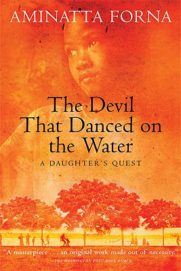 Aminatta Forna: In the later 1990s when the war in Sierra Leone was ongoing, I felt there was an urgent necessity to address what was happening in our country in a way that went beyond news reporting. By then I had been a BBC journalist for ten years and knew well both the limitations of the form and the way the Western media served and continues to serve the African continent poorly. The question I wanted to answer was how had Sierra Leone lost its way? My father’s and my family’s story held part of the answer. In a final letter to the nation shortly before his death in 1975, my father had foretold the country’s future if people allowed our then nascent democracy to be subverted. He warned about the end of the rule of law and of coming war. The causes of the war were political; there was a chain of cause and effect. I wanted to write about that, to trace the place where the country left the path. To me it is the task of the writer, of the artists, to address these moments in a country’s story.
Aminatta Forna: In the later 1990s when the war in Sierra Leone was ongoing, I felt there was an urgent necessity to address what was happening in our country in a way that went beyond news reporting. By then I had been a BBC journalist for ten years and knew well both the limitations of the form and the way the Western media served and continues to serve the African continent poorly. The question I wanted to answer was how had Sierra Leone lost its way? My father’s and my family’s story held part of the answer. In a final letter to the nation shortly before his death in 1975, my father had foretold the country’s future if people allowed our then nascent democracy to be subverted. He warned about the end of the rule of law and of coming war. The causes of the war were political; there was a chain of cause and effect. I wanted to write about that, to trace the place where the country left the path. To me it is the task of the writer, of the artists, to address these moments in a country’s story.
AV: What writers have influenced you and can you name a few of your favorite books?
AF: I grew up reading the South African writers: Nadine Gordimer, Alan Paton, Andre Brink. These writers revealed to the world what the apartheid regime denied, stripped away the lies to reveal the brutishness beneath. I recently met Isabel Allende for the first time; as a young woman I had been utterly absorbed by The House of the Spirits. Her life could have been my life. I looked to South American writers in my twenties, for the ways in which they addressed political upheaval and social injustice. I teach my students Death and the Maiden by Ariel Dorfman. Can you imagine the impact of going to the theatre to see that play in Santiago in the 1990s when Pinochet was still alive? Dorfman has said he thought that of writing it as a novel, but decided the story needed to be made into a play so that the experience of seeing it would be a collective one. He was forcing a nation to address its conscience. Nearly three decades later the play still resonates, and it could be set anywhere: Indonesia, Syria, Egypt, El Salvador. I adore Anil’s Ghost by Michael Ondaatje. Those are some of the books that shaped my writing mind. I don’t have favorite books, but I am drawn to works which ask questions about the human condition. People write and read for many reasons, but for me what fiction does best is to offer the opportunity to interrogate the way we live through the self.
Nina Shanu: The Devil that Danced on the Water is a wonderful, heartbreaking memoir. However, it seems your father, Mohamed Sorie Forna, underestimated the maliciousness of President Siaka Stevens. Do you think your father, who was a physician, was naive not to think Stevens would try to malign him, especially considering the public response to your father’s resignation as Minister of Finance? Why didn’t he get himself and his family out of the country?
AF: My father was thirty-nine when he was killed—he was young, not naive. Stevens’s regime was gathering pace and power, but he had not yet begun to murder his opponents. I’m often asked why my father didn’t leave. I have to say I struggle with this question, as I understand perfectly why he stayed. For a political activist, danger goes with the job description. My father was a political activist who chose to stay and fight. He loved his country and he wished to remain there. After his death my step-mother stayed and I continued to go home to Sierra Leone from my boarding school in Britain during the holidays. We never left. I asked my step-mother about that once, given how very tough it was for her as my father’s widow. She said my father very much wished her to stay and she wanted to as well. She told me: “I would not give them (Stevens and his acolytes) that satisfaction.”
NS: After uncovering the events that led to your father’s death and writing your memoir, how has this changed you?
 AF: It gave me a hard-earned wisdom. When I told my sister what I was planning she said, “Be careful, what you discover may be worse than what we think.” I didn’t know how much worse it could be, but it was. I thought I was going to uncover a sophisticated plot that would take me months to unravel. What I discovered instead was that Stevens, when he wanted my father dead, merely let his wishes be known and those around him were all too willing to play their part. The level of complicity was astonishing and the discovery of how it penetrated almost the whole society led me to write The Memory of Love. This, of course, is not unique about Sierra Leone.
AF: It gave me a hard-earned wisdom. When I told my sister what I was planning she said, “Be careful, what you discover may be worse than what we think.” I didn’t know how much worse it could be, but it was. I thought I was going to uncover a sophisticated plot that would take me months to unravel. What I discovered instead was that Stevens, when he wanted my father dead, merely let his wishes be known and those around him were all too willing to play their part. The level of complicity was astonishing and the discovery of how it penetrated almost the whole society led me to write The Memory of Love. This, of course, is not unique about Sierra Leone.
I also discovered the face of courage via the elderly couple who hid me as a child. I asked them why they did it and they replied that they couldn’t have lived with themselves if they had done anything else. I’ve heard this predicament called the “Anne Frank test”—it poses the question of whether someone you know is a good enough person that they would hide you if the worst happened. I find myself thinking about people this way now. Which one would they be, the complicit or the quietly courageous? This question has informed a great deal of my writing ever since. It is one we should all be asking ourselves.
AV: Was it a difficult transition to move from non-fiction to your first novel, Ancestor Stones?
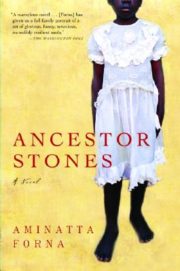 AF: The writer of creative non-fiction and the writer of fiction have much in common. Both employ the techniques of narrative, plot, pace, mood, and tone, considerations of tense and person, the depiction of character, the nuance of dialogue. Where the difference lies is that the primary source of the fiction writer is first and foremost their imagination, followed by their powers of observation and maybe a certain amount of research. The primary resource of the writer of creative non-fiction is lived experience which is, above and beyond all, memory. Then you can add observation and research to that. The big difference is that the writer of non-fiction works within the limitations of the story as given, remembered, or told. Non-fiction can be also untidy—there are usually too many characters—whereas in fiction you would use one character for multiple purposes. These are some of the challenges of non-fiction. The challenge of fiction is that there are no “givens” to rely on. It’s easy to lose track of what story you are telling, to lose direction or even inspiration.
AF: The writer of creative non-fiction and the writer of fiction have much in common. Both employ the techniques of narrative, plot, pace, mood, and tone, considerations of tense and person, the depiction of character, the nuance of dialogue. Where the difference lies is that the primary source of the fiction writer is first and foremost their imagination, followed by their powers of observation and maybe a certain amount of research. The primary resource of the writer of creative non-fiction is lived experience which is, above and beyond all, memory. Then you can add observation and research to that. The big difference is that the writer of non-fiction works within the limitations of the story as given, remembered, or told. Non-fiction can be also untidy—there are usually too many characters—whereas in fiction you would use one character for multiple purposes. These are some of the challenges of non-fiction. The challenge of fiction is that there are no “givens” to rely on. It’s easy to lose track of what story you are telling, to lose direction or even inspiration.
Jennifer Otalor: It seems Ancestor Stones used the stories and lives of the women to portray the evolution of the West African nations and their communities. Were these women symbols of this evolution?
AF: Each woman in Ancestor Stones is born into a different period of her country’s history. Asana is born into a pre-colonial world; Hawa is a child of the colonial era; Mariama comes into contact with the missionaries and their ambitions; Serah comes of age at the same time as her country. The women are not so much symbols of this evolution—or transition might be a more accurate word—as they are impacted by political events of which they were often not even aware and in ways they do not realize.
JO: Reading Ancestor Stones reminded me of what I experienced in Nigeria as a child. Were most of the experiences you wrote about in your novel based on true events?
AF: The stories in Ancestor Stones are fiction. Like many writers, if not most, I find inspiration in something seen or heard. Some of the stories grew out of such a kernel. During my research I spoke to many older women about their lives from the 1930s to the present day, for this was not the kind of information you could read about in a library or on the Internet. They were the kind of lives that had gone more or less unrecorded. Once or twice a woman said something that prompted an idea. For example, I first heard about the stones from a woman whose father had thrown her mother’s stones away. Her mother pined and died thereafter. This women did not know what the stones represented, she only saw that they meant a great deal to her mother. Later I discovered the significance of the stones, that they represented a woman’s line of descent, her mother and her mother’s mother and so forth. Each woman added a stone to the collection before she passed it onto her daughter. I found that woman’s single memory so moving and so compelling that I built a narrative around it.
AV: Your second novel, The Memory of Love, won the Commonwealth Writer’s Prize Best Book Award in 2011. What was the genesis for writing this multi-layered story that revolves around Elias Cole, his love for the beautiful but married Saffia Kamara, and his betrayal of her husband?
AF: The genesis was talking to people about the 1960s and 1970s in Sierra Leone, people who had been witnesses and sometimes party to events. I was interested to know how those who had been silent or complicit could live with their choices. What was the story they told themselves that made this possible?
AV: Attila runs a mental hospital in The Memory of Love. What made you choose this name and why did you decide to make him one of the main characters in Happiness?
AF: Attila stayed with me, as simple as that. I kept thinking about him. I wrote a couple of short stories in which he is featured. I became very curious to know what he thought of the West and its values. Attila is not such an unusual name in West Africa since there was a fashion for the names of historic characters at one time.
AV: You have described how Sierra Leoneans, in living with the memory of the civil war, existed with a “disassociative condition in which the mind creates an alternative state. This state may be considered a place of safety, a refuge.” You also touch upon this with Duro in The Hired Man (his memory of Anka is based on smell), and you discuss PTSD with Adama and Rosie’s battle with Alzheimer’s in Happiness. How important is memory, both the good and the bad, to you as a writer?
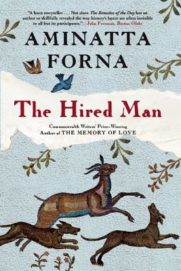 AF: Memories are what shape us. Memories are based on experience, but how we remember the experience is more important than the experience itself. Consciously or unconsciously each one of us creates the narrative of our lives and that is both informed by and informs the way we see the world.
AF: Memories are what shape us. Memories are based on experience, but how we remember the experience is more important than the experience itself. Consciously or unconsciously each one of us creates the narrative of our lives and that is both informed by and informs the way we see the world.
AV: The first thing that struck me about The Hired Man is how physical your prose is—at times I felt like I was reading Hemingway. How do you feel about writing from a man’s perspective?
AF: When I create a character I create a voice for them. I listen closely to people from their world. Croatians in general are economical with words, to the point of dispensing entirely with definite articles. Duro is an excellent hunter, an occupation which demands patience and silence; he prefers his own company to that of other people. So it is his voice that speaks in The Hired Man.
AV: One of the ironies of The Hired Man is that Kos, the blind hunting dog, can easily find his way, yet Laura and Duro are blind to what is around them. It seems inconceivable that Duro can remain in the company of Fabjan and Kresimir after what they have done to those he loved. The same can be said for Agnes in The Memory of Love, who witnesses her husband’s beheading by rebel soldiers and later discovers her sole surviving daughter is married to one of these soldiers. How can these people live amongst people who have been so cruel?
AF: We all live among people who are that cruel, or at least potentially cruel. In peace time most people don’t get the opportunity to live up to their full potential. They need something like a civil war, some breakdown in law and order, which removes the restraints of ordinary society. Duro knows this because he is close to nature and its ways; he has no illusions about human nature. Agnes has no illusions either. Agnes would have grown up knowing poverty and hardship and she would have had few romantic illusions about the world. However, she must endure the consequences of people’s cruelty at even closer quarters than Duro. Both must stay silent, yet Duro has found a way to turn that silence into a weapon against his enemies by threatening to break it. Agnes has no such resource; her silence is turned inward and her mind has found the only way it can to cope with the horror of her predicament.
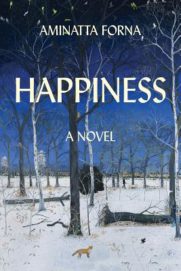 AV: Your latest novel, Happiness, revolves primarily around Dr. Attila Asare, a Ghanan psychiatrist, and Jean Turane, an American social biologist who is studying the habits of urban foxes in London. One of the reader’s first glimpses of Attila is where you state: “He liked to watch the English perform, enacting a conception of Englishness still held sacred in some quarters, among expatriates who went about their parties, bashes and games of golf with a kind of strained urgency, but also here on home turf, in this room, were gathered the guardians of the flame.” Why is it that writers, such as you and Kazuo Ishiguro, can describe the English so well? Also, since you are Sierra Leonean and Scottish, do you feel English?
AV: Your latest novel, Happiness, revolves primarily around Dr. Attila Asare, a Ghanan psychiatrist, and Jean Turane, an American social biologist who is studying the habits of urban foxes in London. One of the reader’s first glimpses of Attila is where you state: “He liked to watch the English perform, enacting a conception of Englishness still held sacred in some quarters, among expatriates who went about their parties, bashes and games of golf with a kind of strained urgency, but also here on home turf, in this room, were gathered the guardians of the flame.” Why is it that writers, such as you and Kazuo Ishiguro, can describe the English so well? Also, since you are Sierra Leonean and Scottish, do you feel English?
AF: There’s a Chinese saying: “A cow can tell you what it feels like to stand in a field and eat grass, but it cannot tell you what that cow looks like standing in a field eating grass.” Possessing more than one cultural influence has gifted me a double consciousness—the ability to view one through the lens of the other. So in a way Ishiguro and I are both the cow and the viewer of the cow.
Do I think of myself as English? Identity is multi-layered and overlapping, far more untidy than I have just suggested. I went to boarding school in England for twelve years and then university. I have lived in London for thirty years and for the last three years in Washington D.C. I am married to an Englishman. I am probably far more culturally English than I am Scottish, having spent much more time in England than Scotland.
AV: Is it fair to assume from your novel that foxes are fairly common in London? Also, based on your research of wolves, coyotes, and foxes, what did you find most surprising?
AF: Foxes are everywhere in London. I’ve seen a fox wander past Buckingham Palace. I’ve seen a fox cross the road in Piccadilly. I have foxes in my garden, where a vixen raises her cubs every year. Like all Londoners I am very used to the proximity of foxes. I never realized coyotes were equally prevalent in American towns and cities; I had assumed them to be mostly rural. A wildlife biologist told me that in Boston you are probably never more than 200 meters from a coyote. The speed at which coyotes evolved from a desert to an urban environment has been astonishing. Their adaptability is what has allowed them to survive strenuous efforts to kill them. You have to admire them for it.
AV: “She stroked the fur of his underbelly. Finally she laid her cheek against his chest and felt the beating of his heart, turned to bury her face in his fur . . . The coyote had been Jean’s first. She had never forgotten.” This scene describes when Jean tags her first coyote; a few years later she remembers “the smell of this animal’s coat the day she felled him and collared him, the warmth of his body, the blood beat of his life.” These scenes seem to have sexual connotations. Is Jean, who is divorced from her husband Ray, in some kind of sexual limbo before she falls in love with Attila?
AF: I would not have said this was intended to be sexual. The moment for Jean is in the transition between studying the animal in the abstract and feeling it as a living, breathing creature. If I were to use an analogy I would say, like a parent having a child placed in her or his arms for the first time, the emotions produced in that moment are far deeper and more complex once the idea of a child becomes a reality. Also, Jean isn’t in state of sexual limbo in London; she has had a couple of lovers of which the Romanian truck driver was the most recent before Attila.
AV: Jean has a very contentious radio interview. Was this scene based on something you experienced?
AF: The style of British radio broadcasters is very different from NPR. They are far more direct, even hectoring, especially on more populist shows—although still not in the league of American talk radio. I know how the inside of a radio studio operates because I have been in them many times, both as guest and presenter.
AV: At one point, Attila says “I’m not being cynical, just realistic. War is in the blood of humans.” Do you believe this statement is true?
AF: Look around you. I recently spoke to a conflict negotiator who was, very much like Attila himself, a trained psychologist. He had spent many years working in Northern Ireland, which is where he was from. He told me that human beings reflexively want what somebody else wants and will try to take it by one means or another. A friend of mine, a war correspondent with thirty years of experience, put it even more succinctly. He said. “War is armed robbery.” Somebody wants what someone else has got and sets out to take it. The Ancient Greeks stole women. Most modern wars have been fought over land, and increasingly, wars are fought over resources such as oil and soon enough water. People think wars are fought over religion, race, or ethnicity, but those things merely act as a justification. Look beyond and you’ll see what is really being fought over is material wealth.
AV: Attila thinks to himself that “he knew, every morning when he woke up, what he had been put on this earth to do. Or he had anyway, the knowledge had nourished him for decades. He could not imagine what it was like not to wake with that sense of purpose.” Do you feel similar to Attila in this regard?
AF: When I became a writer I felt this overwhelming sense of relief that I had found the thing I wanted to do for the rest of my life. My restlessness was over. I feel profoundly lucky.
AV: In the novel you mention a statue in Greenhampton, MA called The Wolfer—does this statue actually exists?
AF: No, I made it up. I made up Greenhampton too. My inspiration for the statue came from those statues to settlers who murdered Native Americans, a few of which still exist in American towns. The statues exist to commemorate not those killed but the killer, to venerate slaughter.
AV: Attila notes just before his conference speech “what [people] desired so badly wasn’t happiness but a state of prelapsarian innocence, the things that babies possessed.” Is happiness a paradox?
AF: The paradox is that happiness is not contingent on the absence of suffering, but the reverse—that surviving difficulty can lead to happiness. In this culture we are conditioned to believe that anything other than pleasure is a threat to happiness, that happiness is an all or nothing condition. The central question in Happiness is this: Can you know happiness if you have never known unhappiness?
AV: Do you think being in love is a contingency of happiness? What can we do to make ourselves happy, since it seems happiness is a fleeting thing for so many?
AF: Are you asking whether you have to be happy to be in love? I’m sure it helps. I think happiness remains elusive when it becomes a goal in itself. The more you chase it, the more elusive it is likely to come. The happiest people I have ever met are those who have committed themselves to an endeavor that goes beyond the self. Happiness is a by-product of that activity, whether it is building hospitals or playing the piano. We tend to assume that all people are capable of achieving happiness, but I think a good many people simply don’t have the temperament for it.
AV: The novel ends with Attila writing a letter to Jean that he decides not to send, but to deliver in person in two days. This recalls the letter Attila did not send to his late wife, Maryse, although this time there appears to be some hope for happiness for the older, more mature couple. Nevertheless, doesn’t it seem the older we get the less we laugh and the less happy we are?
AF: Gosh no, I wouldn’t go back to being in my twenties for all the tea in China. I may have had more fun then, but that’s entirely different from happiness.

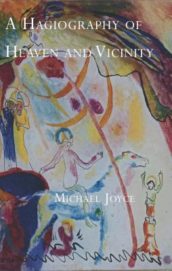
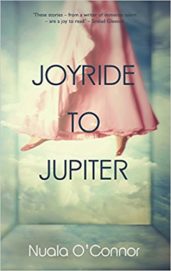
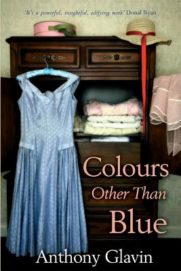

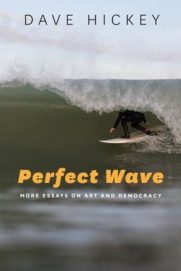

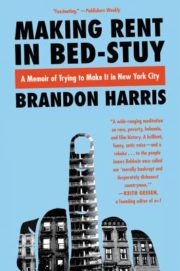
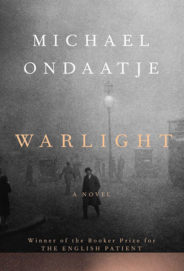 In 1945, just after World War II, fourteen-year-old Nathaniel and his older sister Rachel stay behind in London when their parents move to Singapore. They suspect their caretaker, a mysterious figure named The Moth, might be a criminal, and they grow more convinced as they come to know his eccentric crew of friends: men and women joined by a shared secret history, all of whom seem determined now to protect Rachel and Nathaniel. But are they really what and who they claim to be? And what does it mean when the siblings’ mother returns after months of silence without their father? A dozen years later, Nathaniel begins to uncover all that he didn’t know and understand, and it is this journey through facts, recollection, and imagination that makes this latest masterwork from Ondaatje as beguiling and mysterious as memory itself.
In 1945, just after World War II, fourteen-year-old Nathaniel and his older sister Rachel stay behind in London when their parents move to Singapore. They suspect their caretaker, a mysterious figure named The Moth, might be a criminal, and they grow more convinced as they come to know his eccentric crew of friends: men and women joined by a shared secret history, all of whom seem determined now to protect Rachel and Nathaniel. But are they really what and who they claim to be? And what does it mean when the siblings’ mother returns after months of silence without their father? A dozen years later, Nathaniel begins to uncover all that he didn’t know and understand, and it is this journey through facts, recollection, and imagination that makes this latest masterwork from Ondaatje as beguiling and mysterious as memory itself.